The Revolution Plastics Institute is confronting the global plastics crisis through inclusive, solutions-focused research and innovation. The Advisory Council is a cornerstone of this mission.
The Advisory Council is made up of senior executives from diverse organisations and sectors, including high-level policy agencies, NGOs and both national and multinational corporations. They're united by a shared commitment to creating a future where sustainable plastics production, consumption, and re-use is the norm. And where plastic pollution no longer threatens our environment or health. Together, we’re realising the Revolution Plastics Institute’s vision by unlocking resources, securing investments, and driving impact.
The Advisory Council's role is to:
- Provide invaluable knowledge and connections to guide our research
- Share insights and information about the plastics economy
- Advocate for our work
- Stimulate awareness, debate, and discussion
- Foster cooperation
- Share best practices about plastics
About the Revolution Plastics Institute
Our researchers are helping to build a world that’s more sustainable — a globe-spanning plastics economy based on circular principles. We provide evidence-based support, thought leadership and solutions to governments, businesses, campaigners, researchers, and community groups. The Revolution Plastics Institute is supported by outstanding research and innovation undertaken by the University’s Centre for Enzyme Innovation and the Global Plastics Policy Centre.
Board members
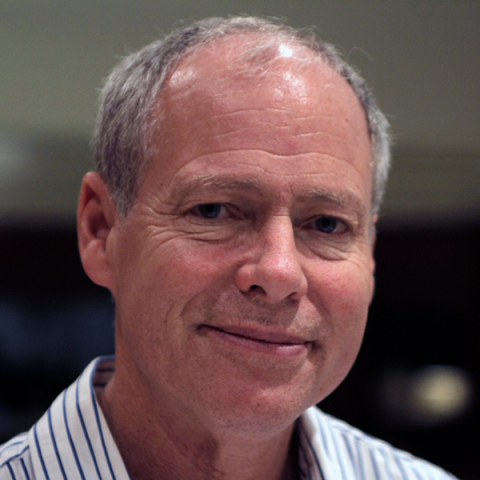
David Willan (Chair)
"The Revolution Plastics Institute is uniquely placed to address the challenges caused by plastic. It has a key role to play through initiatives such as facilitating discussions and supplying evidence to inform the Global Plastics Treaty; driving collaboration amongst those committed to addressing the global plastics crisis; and providing practical measures to reduce plastic pollution."
David Willan is an entrepreneur and business-to-business marketing consultant, specialising in strategy and research. He co-founded two marketing consultancy agencies — BPRI (now part of WPP) and Circle Research (now part of Next 15 plc). He brings over 25 years of executive management experience to the Council.
David served as a Governor of the University of Portsmouth for nine years, including three years as Chair of the Board. During that time he’s experienced the emergence and growing influence of Revolution Plastics, from when it just an idea to its position today as an authoritative, influential and hands-on voice of authority that is committed to significantly reducing plastic pollution.
David's interest in reducing plastic consumption was sparked when he worked on a business case for a new material to replace plastic drinks can rings. He was shocked by the level of damage plastic rings cause to seabirds and marine mammals.
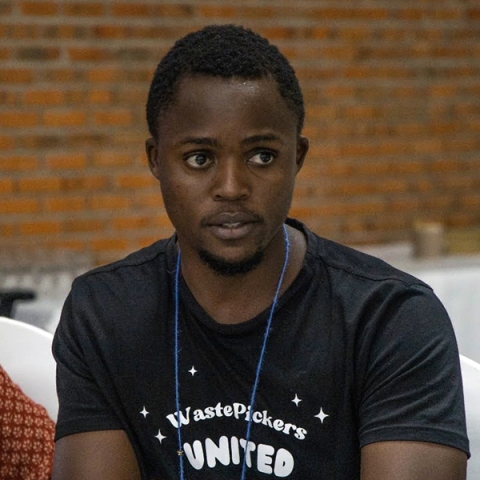
John Chweya, President of the Kenya National Waste Pickers Welfare Association
"Just transition cannot remain a concept... For waste pickers, it's a matter of life and death, and it must be turned into action at all levels, all over the world"
John is a waste picker based in Kisumu, Kenya. He started waste picking at the age of 13 years. Through his work as a waste picker, he noticed the inequalities and injustices that affect the waste pickers in his community despite the integral role that they play in providing livelihoods and improving the environmental conditions in their cities.
At the age of 18 years, he started organizing waste pickers to defend and protect their interests and rights in Kisumu. In 2021, he was elected as the president of the National Waste Pickers Welfare Association in Kenya.
John is also a member of the International Alliance of Waste Pickers. In 2023, John was also listed in TIME 100 Next, an annual list by TIME magazine recognizing the rising leaders in health, climate, business, sports, the arts and more.
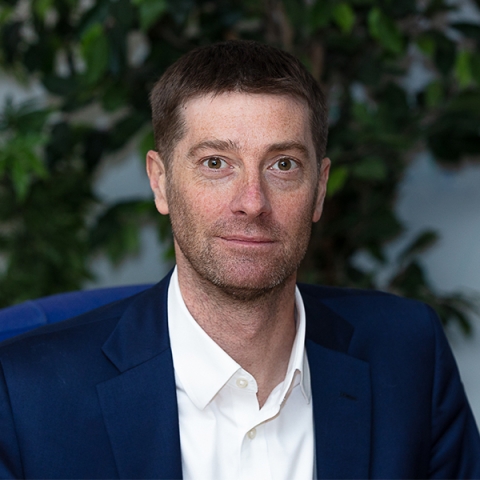
Paul Edwards, Regional Managing Director at NatWest
"Plastic waste is one of the most visible signs of our collective disregard for our planet. I want to be able to look my children in the eye when they ask me 'What did you do, Dad?'”
Paul Edwards is the Regional Managing Director, Corporate and Commercial Banking for NatWest in South West England and Wales.
Paul leads a team of 170 bankers, supporting businesses ranging in size from a turnover of £2.5m through to FTSE 250, across all sectors. As Chairman of NatWest’s South West Regional Board, Paul is focused on aligning the entire bank in the region behind the bank’s key purpose themes — sustainability and climate change, entrepreneurship and financial education. NatWest is the largest provider of funding to business in the UK and plays an important role in supporting its customers’ transition to a sustainable future.
Paul is excited by what can be achieved through the collaborative nature of Revolution Plastics. From the impact on marine life to the carbon footprint associated with plastics, Paul wants to play a role in shaping a sustainable world for his children.

Roisin Greene, Head of Strategy, Growth and Partnerships, Global Plastic Action Partnership at the World Economic Forum
"Now is the time for action, engagement, collaboration to drive impact in a meaningful and sustainable way. Revolution Plastics makes it clear that we all have a role to play."
Roisin is Head of Strategy, Growth and Partnerships for the Global Plastic Action Partnership (GPAP) at the World Economic Forum. GPAP aims to shape a more sustainable and inclusive world by eradicating plastic pollution. Roisin is a strategic sustainability professional with experience working with stakeholders across the spectrum of systemic challenges — from strategy insight and development, to behaviour change, policy, gender, inclusion, innovation, financing, metrics and impact measurement. She has expertise in building multi-stakeholder platforms to foster collaboration to scale up and accelerate solutions.
Roisin believes collaboration between different sectors, businesses and communities is essential to achieve the system-wide actions required to tackle the global plastics crisis. She knows that now is the time for action, engagement, and collaboration to drive impact in a meaningful and sustainable way.

Hannah Harrison, Chief Sustainability Officer at WPP
Hannah Harrison is Chief Sustainability Officer at WPP, one of the world’s largest advertising and communications companies. Hannah works with some of the world’s biggest brands to tackle environmental issues, particularly plastics and climate change.
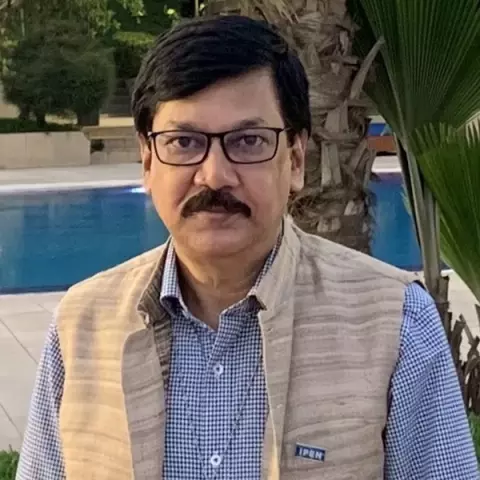
Shahriar Hossain, Senior Technical Advisor, Environment and Social Development Organization (ESDO)
"Revolution Plastics offers academia, civil society, governments, and businesses a unique opportunity to solve the plastic problem together. The work it does to reduce plastic pollution is inspirational because it focuses on community-based and sustainable solutions."
Dr Shahriar Hossain is Senior Technical Advisor for the Environment and Social Development Organization (ESDO) in Bangladesh and leads their research, media campaigns and policy and advocacy work. Shahriar is also a member of the International Pollutants Elimination Network (IPEN) Steering Committee.
Shahriar leads ESDO’s research team to conduct social-ecological and socio-anthropological studies. The results underpin policy advocacy and mass awareness campaigns, with the core aim of advancing national and international policy on plastics and microplastics pollution.
Shahriar is committed to tackling the root cause of plastic pollution and its toxic impact on humans and the natural environment. In order to achieve sustainable livelihoods and environmental justice, he believes there is a need for scientific evidence in order to tackle the plastic problem, along with lobbying, advocacy, and mass awareness campaigns.
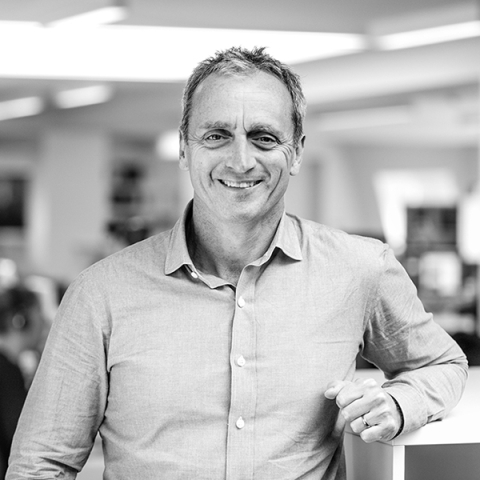
Nigel Salter, Sustainability Management Consultant
"Plastic is one of the most amazing materials of our time but its misuse means it's now one of the defining problems of our time. Innovation, new thinking, experimentation and science are key to the future of plastics."
Nigel Salter is an independent adviser, speaker, commentator and facilitator in global sustainability and a non-executive director for several companies in the UK and Europe.
As Director of SB+Co, a sustainability management consultancy, Nigel helps clients respond to the challenges and opportunities created by the changing relationship between business and society. He specialises in developing strategies, missions, models and communications that deliver commercial and competitive advantage for his clients – finding ways for companies to review their role in society and the value they create, and helping them adapt their brands accordingly.
Nigel believes there will only be a place for plastics in future consumption if initiatives like Revolution Plastics develop breakthroughs in science, policy and innovation that find ways to value, use and dispose of plastics differently.
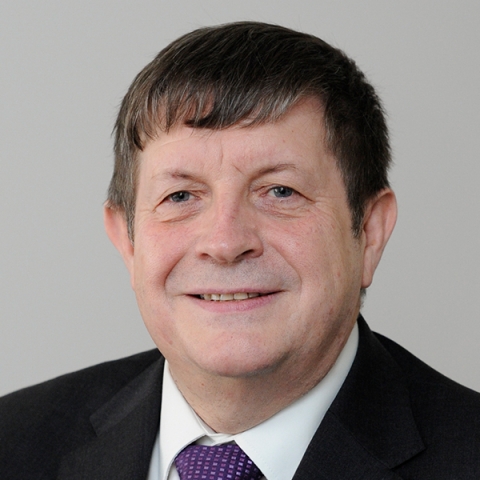
Adrian Whyle, Expert in Materials Circularity
"The Revolution Plastics Institute provides an opportunity to address the challenges of linear consumption. Research and innovation will accelerate society's journey to full circularity by optimising the use of materials in the most sustainable manner — to meet society’s needs today and leave a planet where future generations can thrive."
Adrian has over 40 years of international experience, much of it gained in the speciality chemicals industry in roles ranging from pure R&D to new product development, manufacturing, technology and knowledge transfer, innovation leadership and international marketing and communications.
Over the last 18 years, Adrian has combined his experience within these roles to help minimise the impact of society's behaviour through his work in the areas of innovation, sustainability, the circular economy and industrial symbiosis. He has recently retired from Plastics Europe where he held the role Senior Resource Efficiency Manager for 13 years.
Adrian continues working in the environmental sector acting as a change maker; working with governments, the research community and small, medium and large enterprises to secure the circularity of all materials. He holds a number of advisory roles including the British Plastics Federation where he acts as their Senior Technical Advisor.
